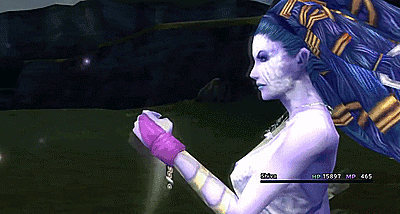Chapter 1
This chapter begins by explaining all the personal motivations that lead to the war, and goes ahead to tell us how it will end, before the book goes back and explains what happened on a people level. Napoleon is arrogant, Alexander is slighted, Barclay de Tolly is famestruck, Nikolai is a soldier, Anatole's hot, Marya's old-school, Sonya's good, Natasha's young, and Andrew isn't here. Tolstoy explains that, while each acted of their own free will, their free will was shaped by the society they were in, and the higher up they were, the less free they were. All that is left now - at the time Tolstoy wrote - is history. The Russian's one, and now, Tolstoy explains, we know that it was because the French were not prepared for the Russian winter (the infamous Generals, January and February) and because of how personally the Russian people took the attack. But, no one living then could have predicted that the French would be beaten by an army of raw recruits only half their size. Also (paraphrased) both sides were doing stupid things - the French were pressing forward and the Russians were pushing them back, even though Russia eventually won by luring the French deep into the country and then, presumably, summoning Shiva.
Historians in Tolstoy's time - according to him - liked to say that the French were wary and the Russians were confident, but Tolstoy points out that we only remember the small events that agree with that narrative because the Russian's won. There were loads of indications that things would go another way, but everyone ignores those. Tolstoy attributes the Russian victory to everyone doing whatever they wanted in a way that happened to be lucky for Russia, even though no one really succeeded in what they were actually trying to do.
Most of the chapter is details which make my eyes glaze over. Basically, the French army reached Smolensk by August, fought a battle in which thousands died on both sides, and then began to advance on Moscow, which was their downfall. The local people of Smolensk burned it to the ground, unhappy with the Russian leadership and French invasion, and carried that hatred to other Russians, which also contributed to the French defeat.
Chapter 2
We're back to people-stuff now. It's July, the day after Andrew has left, and old Prince Nikolai Bolkonski is blaming it on Mary. He shouts at her then sulks in his room for a week. Mary notices that he excludes everyone, including Amelie Bourienne (but not his butler, a man has to uphold standards). When he comes out, he still has a face like a wet weekend, but he breaks things off with Amelie and goes back to his old way of life. I think Mary's happy - she spends half of each day with her nephew, young Nikolai, and the rest studying her books. Mary doesn't think of this war as important or different from any others, apart from the fact that her brother might die, even though her pilgrim friends and many others try to explain it to her.
Honestly, I'm afraid of Brexit. That might seem like a weird interjection, but what brings it to mind is that feeling of confidence, that Britain has lasted for millenia, that we have been powerful, successful, and a pretty luxurious place to live compared to many countries, and while it seems like things might remain that way for ever...they actually might not. This time might be different. And if not Brexit, then climate change, or whatever stupid way our society is going to destroy itself. Things can be changed for good, which this war might do for Russian society, and which Mary just does not see coming.
Anyway, Mary's friend Julie Dubretskaya (formerly Karagina, but now she's married to darling Bory) writes to Mary, in "Frenchified Russian" to explain that she now hates the French, and all her other worries about the war. Mary still is not concerned, mostly because her father isn't. He's basically back to his old self, apart from the fact that he doesn't really sleep, and, when he does sleep, keeps changing his sleeping place.
On the first of August, they receive a letter from Andrew. He's asking his father for forgiveness for their row, and Old Nikolai replies affectionately and explains that he's broken up with Amelie. So that's all right then. Andrew's second letter gives them an update on the war and warns his father that staying at Bald Hills might not be the best idea. Old Nikolai tells Mary about the letter at dinner, but insists that the "theatre of war" will be Poland, not central Russia. We already know that's not true, so this doesn't seem like a good sign for the Bolkonski's. Also, old Nikolai gets muddled with previous campaigns, which is not a good sign for him. Mary notices the encroaching dementia and is concerned.

No comments:
Post a Comment